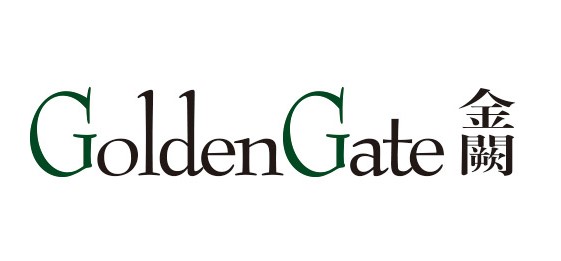Retention of title clauses ensure sellers can retake goods if buyers default or go into bankruptcy. However, the clause doesn’t guarantee smooth enforcement; instead, effective litigation strategies are needed
A retention of title clause (ROT) is a provision in a sale of goods contract which specifies that, even after delivery, the title to the goods remains with the seller until the buyer makes full payment or meets certain requirements.
The clause entitles a seller to keep the legal title to goods until the buyer pays off the total purchase price. If the buyer fails to pay the purchase price, the seller is entitled to retake possession of the goods. In particular, if a buyer goes insolvent, the seller can rely on the retention of title clause to ensure that the goods do not form part of the buyer’s estate, and allows the seller to repossess the goods. This protects the seller and helps the seller control the risk.
Retention of title clauses are covered by China’s Contact Law. However, to further address the retention of title clause, the China Supreme People’s Court issued an Interpretation on Issues Concerning the Application of Law for the Trial of Disputes over Sales Contracts in 2012.
Reflecting Chinese Contract Law, the China Civil Code – which came into force on 1 January 2021 – sets forth rules on retention of title in articles 641 to 643. Specifically, article 641 stipulates that the ownership of subject matter retained by a seller, without being registered, shall not be asserted against a bona fide third-party claim.
Furthermore, under article 642, title retention affords a seller the right to take back the subject matter under any of the following circumstances:
- The buyer fails to make payment in accordance with the contract and fails to pay it within a reasonable period of time after being demanded;
- The buyer fails to fulfil the specific conditions in accordance with the contract; or
- The buyer sells, pledges, or otherwise improperly disposes of the subject matter.

Managing Partner
GoldenGate Lawyers
Notably, the second paragraph of article 642 provides that a seller may negotiate with the buyer to take back the subject matter. Where negotiation fails, a seller may refer to the procedures for enforcement of security interests, which are stipulated in articles 207 and 208 of China’s Civil Procedure Law.
This means that sellers may use two procedures to repossess subject matter: the simplified procedure and standard civil procedures.
Under the simplified procedure, a seller may file an application for repossession with the local people’s court at the place where the goods are located or ownership of the goods is registered. If the court finds that the parties have no substantive controversy over the right to repossess, it will issue a ruling to permit the seller’s application. However, if there is any substantive dispute over the seller’s right to repossess, the court has to revoke the seller’s application; the seller will then be asked to raise its claim through standard civil procedures.
In practice, to maximise the protection of their own rights and interests, sellers should carefully make their claims in connection with their title retention right. Typically, in lawsuits involving title retention, sellers often make comprehensive claims, such as:
- Paying off the balance together with the penalty interest for late payment;
- For a court determination that the seller is entitled to the subject matter before the balance and the penalty interest has totally been settled; or
- Returning the subject matter if the buyer fails to pay off the balance and/or the penalty interest.
It should be noted that, in accordance with article 26 of Interpretation on Issues Concerning the Application of Law for the Trial of Disputes over Sales Contracts (Amended in 2020), if a buyer has already paid more than 75% of the total price of the subject matter, the court shall not support a seller’s claim to retrieve the subject matter. Although such a threshold is not provided in the China Civil Code, following the 2020 amended interpretation, the court may stick to it. This threshold is necessary to balance the rights and interests of both seller and buyer. An unlimited right to repossess subject matter may cause unfairness to the buyer and ultimately lead to interruption of the buyer’s business operation.
There is a common mistake made in many cases: even assuming that a title retention clause has been explicitly set forth in a contract, sellers often fail to make a claim for a court’s determination about their ownership over the subject matter. Instead, they claim only for a ruling that the buyer pays off the purchase price and penalty interest. This failure may result in adverse legal consequences, reflecting the importance of a seller always claiming for a court determination on the ownership of the subject matter during legal proceedings.
Court determination of ownership also serves another significant function. Pursuant to article 238 of the China Civil Procedure Law, an entity that is not party to a case may raise a written objection to the execution of a judgment against subject matter, and the court must examine the objection within 15 days of receiving it. Where the third-party’s objection is tenable, the court must rule that execution be suspended. Therefore, an existing court determination on ownership will inevitably facilitate this objection procedure and greatly help the court make a straight ruling about the seller’s objection. This works to prevent other buyer creditors from requesting court orders to seize and sell property that is actually owned by a seller under the title retention clause. Without this determination of ownership – and even if the contract has a title retention clause – a seller has to dive into the time-consuming standard civil procedure, which generates additional legal costs and fees.
In conclusion, considering the complexity of sales contracts with title retention clauses, before initiating legal proceedings it is necessary to carefully assess factors including the buyer’s ability to pay debts, the nature of the goods, value depreciation of the goods, the goods’ resale market, and the encumbrance on the goods.
Meng Ting is a managing partner at GoldenGate Lawyers. He can be contacted by phone at +86 10 8589 0501 or by e-mail at tmeng@goldengatelawyers.com

Suites 1106A-1107B
11th Floor, West Tower, Twin Towers
B-12 Jianguomenwai Avenue
Chaoyang District, Beijing 100022, China
Tel: +86 10 8589 0501
Fax: +86 10 8589 3841
www.goldengatelawyers.com






















